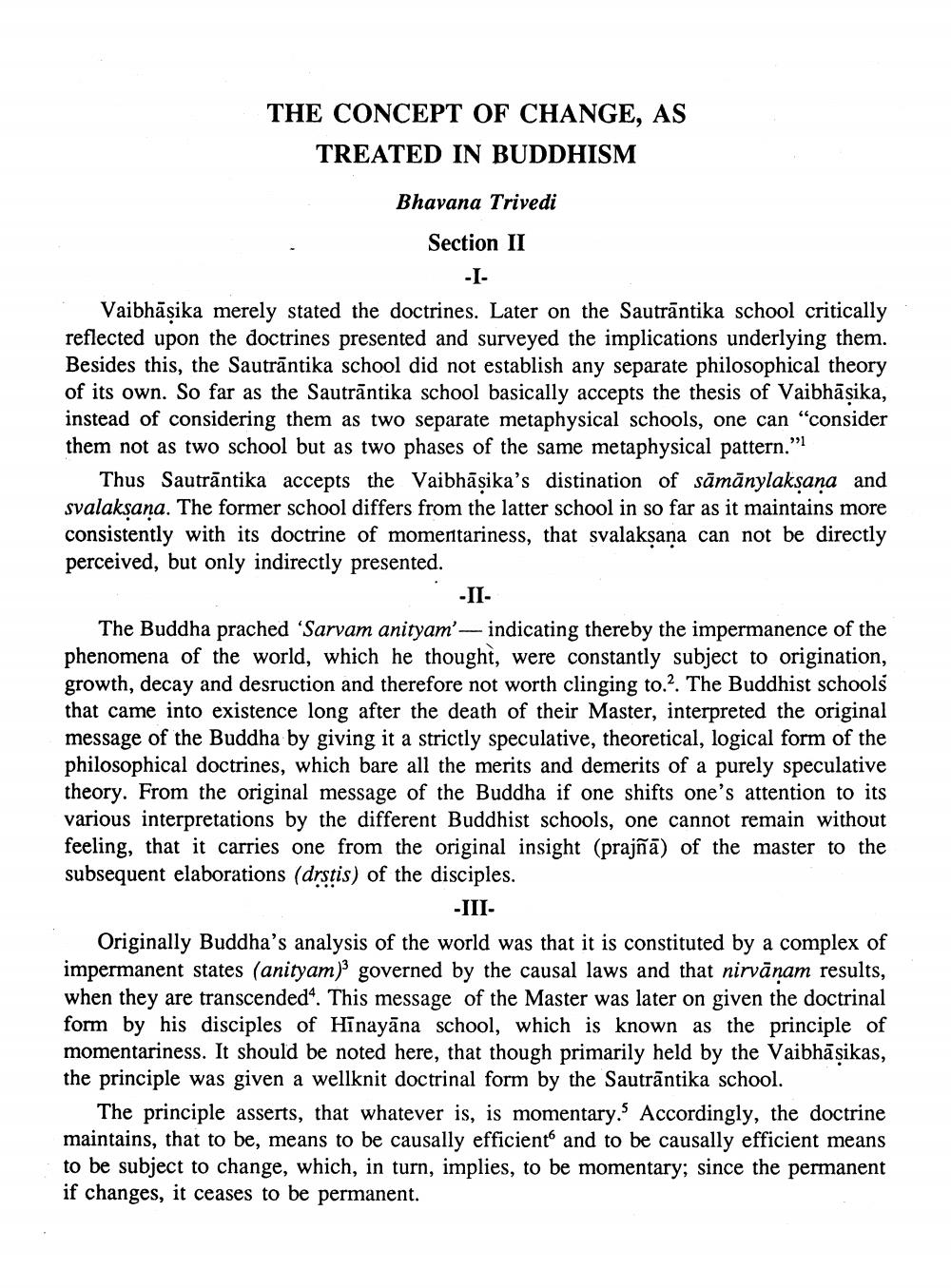________________
THE CONCEPT OF CHANGE, AS
TREATED IN BUDDHISM
Bhavana Trivedi
Section II
Vaibhāsika merely stated the doctrines. Later on the Sautrāntika school critically reflected upon the doctrines presented and surveyed the implications underlying them. Besides this, the Sautrāntika school did not establish any separate philosophical theory of its own. So far as the Sautrāntika school basically accepts the thesis of Vaibhāsika, instead of considering them as two separate metaphysical schools, one can “consider them not as two school but as two phases of the same metaphysical pattern."'!
Thus Sautrāntika accepts the Vaibhāşika's distination of sämānylaksana and svalaksana. The former school differs from the latter school in so far as it maintains more consistently with its doctrine of momentariness, that svalaksana can not be directly perceived, but only indirectly presented.
-IIThe Buddha prached 'Sarvam anityam'- indicating thereby the impermanence of the phenomena of the world, which he thought, were constantly subject to origination, growth, decay and desruction and therefore not worth clinging to.2. The Buddhist schools that came into existence long after the death of their Master, interpreted the original message of the Buddha by giving it a strictly speculative, theoretical, logical form of the philosophical doctrines, which bare all the merits and demerits of a purely speculative theory. From the original message of the Buddha if one shifts one's attention to its various interpretations by the different Buddhist schools, one cannot remain without feeling, that it carries one from the original insight (prajna) of the master to the subsequent elaborations (drstis) of the disciples.
-IIIOriginally Buddha's analysis of the world was that it is constituted by a complex of impermanent states (anityam) governed by the causal laws and that nirvānam results, when they are transcendedo. This message of the Master was later on given the doctrinal form by his disciples of Hīnayāna school, which is known as the principle of momentariness. It should be noted here, that though primarily held by the Vaibhāsikas, the principle was given a wellknit doctrinal form by the Sautrāntika school.
The principle asserts, that whatever is, is momentary. Accordingly, the doctrine maintains, that to be, means to be causally efficient and to be causally efficient means to be subject to change, which, in turn, implies, to be momentary; since the permanent if changes, it ceases to be permanent.




